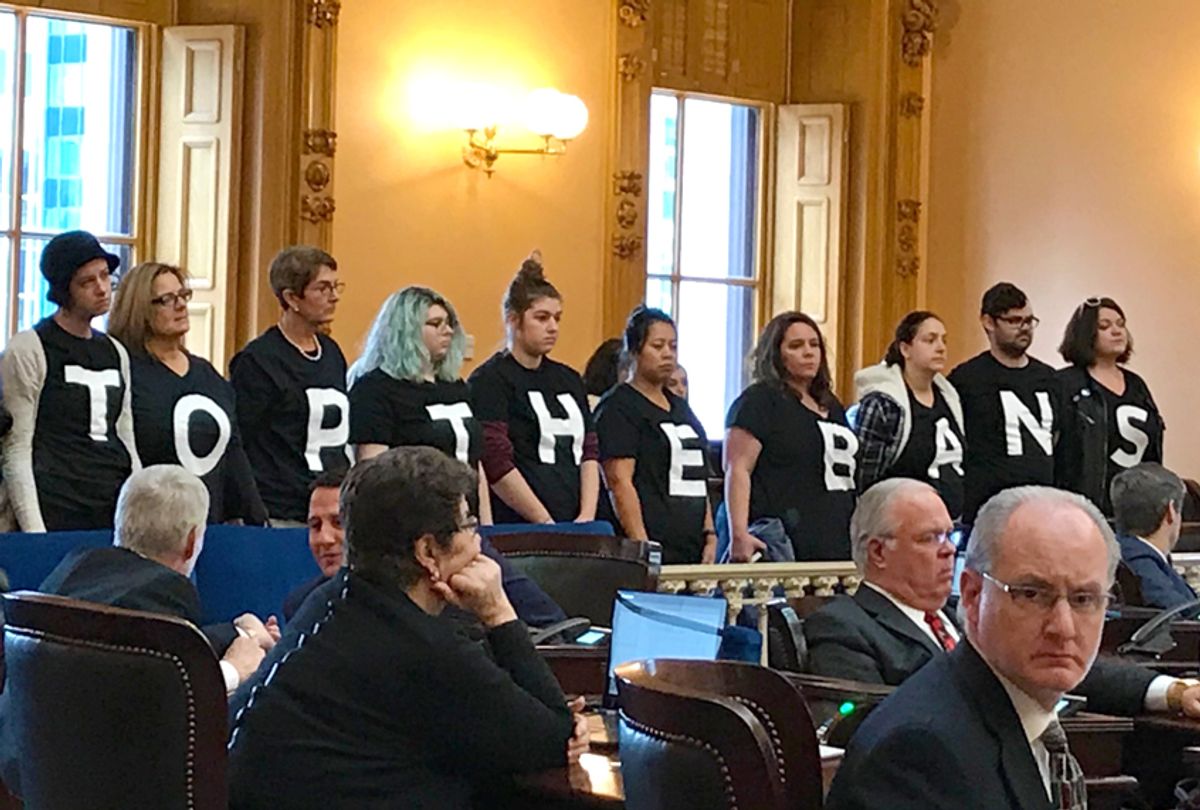The American Civil Liberties Union of Ohio filed a complaint to block an impending state legislation that would punish abortion providers who perform the procedure on patients when they know there is reason to believe the fetus could have Down syndrome.
House Bill 214, which was signed by Governor John Kasich, is expected to take effect on March 23, 2018. Under the legislation, abortion providers could have their medical licenses revoked. Similar laws have passed in North Dakota and Indiana.
The complaint, filed by the ACLU on abortion providers like the Planned Parenthood, argues the law is unconstitutional.
"By striking at the very heart of the Fourteenth Amendment right to privacy and autonomy, H.B. 214 imposes an unconstitutional undue burden on the abortion right, and Plaintiffs are therefore entitled to declaratory and injunctive relief against its enforcement," the complaint states.
The complaint also calls the legislation "Ohio’s latest attempt to prevent women from exercising their constitutionally protected right to abortion." The plaintiffs are requesting a permanent injunction on the law.
The impending legislation raises ethical questions, such as: Are women getting abortions in Ohio after discovering the child might have Down syndrome? If they are, what grounds—if any—does the government have to step in and prevent the procedure? And why punish abortion providers for doing their job? Indeed, these questions exemplify the variations of the ongoing abortion and women's reproductive rights debate—something republican male lawmakers continue to think they can control.
According to the complaint, women seeking out abortion procedures after discovering the fetus has signs of Down syndrome, is not exactly an epidemic that could justify such a legislation.
"Plaintiffs are aware that a small percentage of their patients seek abortions based solely or in part on a prenatal diagnosis of Down syndrome or, in rare cases, a prenatal test indicating a likelihood of Down syndrome. These patients typically come to the clinic only after undergoing extensive counseling with a high-risk obstetrician-gynecologist (“OB/GYN”), also known as a specialist in Maternal-Fetal Medicine (“MFM”), and/or a genetic counselor," the complaint states.
Down syndrome is a condition in which a baby is born with an extra copy of Chromosome 21. "This extra copy changes how the baby’s body and brain develop, which can cause both mental and physical challenges for the baby," the Centers for Disease Control and Prevention explains. About 6,000 American babies are born with the condition each year.
Mike Gonidakis, president of Ohio Right to Life, called the ACLU's move to block the law "a shame."
"It is a shame that an organization that claims to be the very biggest and best at defending victims of discrimination completely disregards the most vulnerable members of our society who are being discriminated against," Gonidakis said in a statement.
However, the ACLU argued that if Ohio officials really care about those with disabilities, they should look to healthcare first.
“If Ohio politicians wanted to proactively take a stance for people with disabilities, they should improve access to health care, education, or other services,” Freda Levenson, legal director for the ACLU of Ohio, said in a statement.



Shares